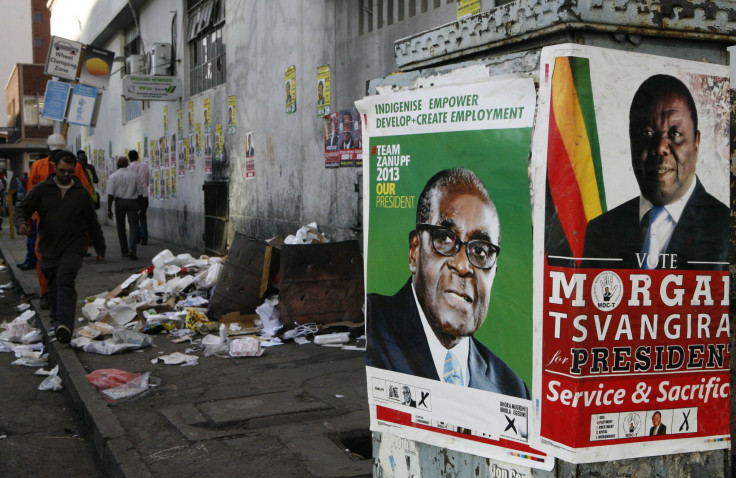With Zimbabwe On Edge, AU Casts A Vote Of Confidence Ahead Of Pivotal Election

In Zimbabwe, positive expectations regarding the presidential election scheduled for July 31 are hard to come by. The autocratic President Robert Mugabe, who has ruled over the country for 33 years, is up against his old rival Morgan Tsvangirai. The last time these two men went head to head for the presidency in 2008, violence erupted and Tsvangirai dropped out. This time around, poll preparations are already plagued by inefficiencies and early suspicions of foul play.
A note of optimism, however, came from the African Union on Friday, when AU chairwoman Nkosazana Dlamini-Zuma spoke at a media briefing. “We held meetings with all the candidates who said they are happy with the environment towards elections,” she said, according to the Zimbabwe Independent. A representative for the African Union Election Observer Mission also pointed to a "largely peaceful and calm political environment" but did note that the registration period had been marred by difficulties, including a too-short time frame that left thousands unable to cast a ballot.
International watchdogs are keeping a close eye on this pivotal election, lest Zimbabwe see a repeat of the violence that killed more than 200 people five years ago. Tsvangirai was installed as prime minister in the aftermath, according to an agreement brokered by regional governments. He still retains his post despite a toxic relationship with Mugabe.
The president's ruling party, the Zimbabwe African National Union-Patriotic Front, or ZANU-PF, has gained a reputation for endemic corruption, fiscal mismanagement and political suppression. It still enjoys widespread domestic support, but a rising tide of dissent has convinced Tsvangirai that his Movement for Democratic Change party, or MDC, stands a chance this time around -- as long as the elections are fair and transparent.
The MDC has condemned the problematic registration process, as well as Mugabe's decision to hold elections on July 31 instead of at a later date, which would've allowed for the implementation of more electoral reforms. Young urban voters in the capital city of Harare who are more likely to support Tsvangirai are worried they may face extra difficulties casting their ballots on Election Day.
At a press conference on Friday, Tsvangirai expressed deep misgivings, noting that the "credibility of this election is at risk," according to the Associated Press. "This chaos will lead to inconclusive and contested results," he added. But the African Union's lukewarm approval may calm some nerves as Zimbabwe approaches this pivotal vote.
© Copyright IBTimes 2024. All rights reserved.





















